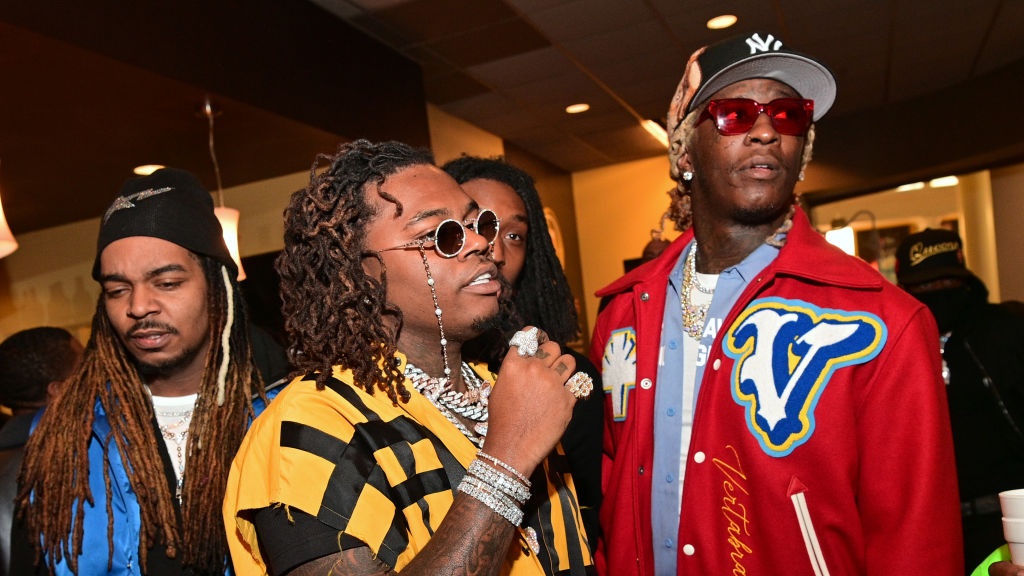Rappers Young Thug and Gunna pulled up to the Fulton County Jail in their hometown of Atlanta over the weekend and posted bonds for 30 individuals being held on minor offenses.
“This is where we are from,” Young Thug told WSB-TV. “We just woke up and went to the jail with the lawyer and you know DAs and the prosecutors, you know, the bonding companies and just got as many people as we can out.”
The newly freed individuals enjoyed a home-cooked meal after being released. They also learned that they will be featured in a brand new music video. One child was seen in a heartwarming clip as he ran up to hug his father who just came out of jail.
“You never know what somebody been through. There was people sitting out three or four years and couldn’t get out on a bond,” Gunna said. “If they did the crime, then they can do the time, then it’s all right. But it’s like you’re giving them a bond higher than what they stole.”
Two months earlier, WSB-TV highlighted the disturbing conditions at the Fulton County Jail, which was exceeding its capacity by more than 400, holding 2,900 inmates.
“This is some of the worst conditions I’ve ever seen,” councilman Michael Bond told the news station at the time.
Young Thug and Gunna didn't disclose how much money they spent to release the individuals. But the artists said they plan to pull off a similar act of kindness again in the future.
Young Thug and Gunna bailed out 30 inmates from Fulton County jail this past weekend.
Most inmates were booked on minor offenses but couldn't get out because of bail money. ????????
????️ @wsbtv
pic.twitter.com/GD6itjlEHn— Everything Georgia (@GAFollowers) April 26, 2021
Other celebrities have also been showing up in support of some of those incarcerated. Last year, during the George Floyd protests, Gabrielle Union was among those who donated to bail out arrested demonstrators.
Ok I know I'm blowin up some folks DMs worried cuz I haven't heard from yall up in Minneapolis & I must sound like a scared mom. Remember to periodically check in & just in case yall need us, we have donated here. Every amount helps. Be careful & please take care of each other https://t.co/7klKwWQNHv
— Gabrielle Union (@itsgabrielleu) May 29, 2020
Lizzo used her Instagram to encourage people to join her in donating to the Minnesota Freedom Fund and to the Black Visions Collective, which advocates for defunding the police.
Alexandra Natapoff, a law professor at the University of California, Irvine, said 80% percent of the criminal cases in the country are for misdemeanor charges.
"We need a misdemeanor system that is capable of punishing low-level crime in a way that’s proportionate and fair," Natapoff told The Intercept. "But our misdemeanor system has ballooned to encompass all kinds of other things."
The professor added that police are using the system "to enforce gentrification boundaries; to collect information; to meet performance metrics in their own department."
"The misdemeanor system has always exceeded its core purpose of crime control and always reached into the outer corners of social control and social regulation," Natapoff said.
